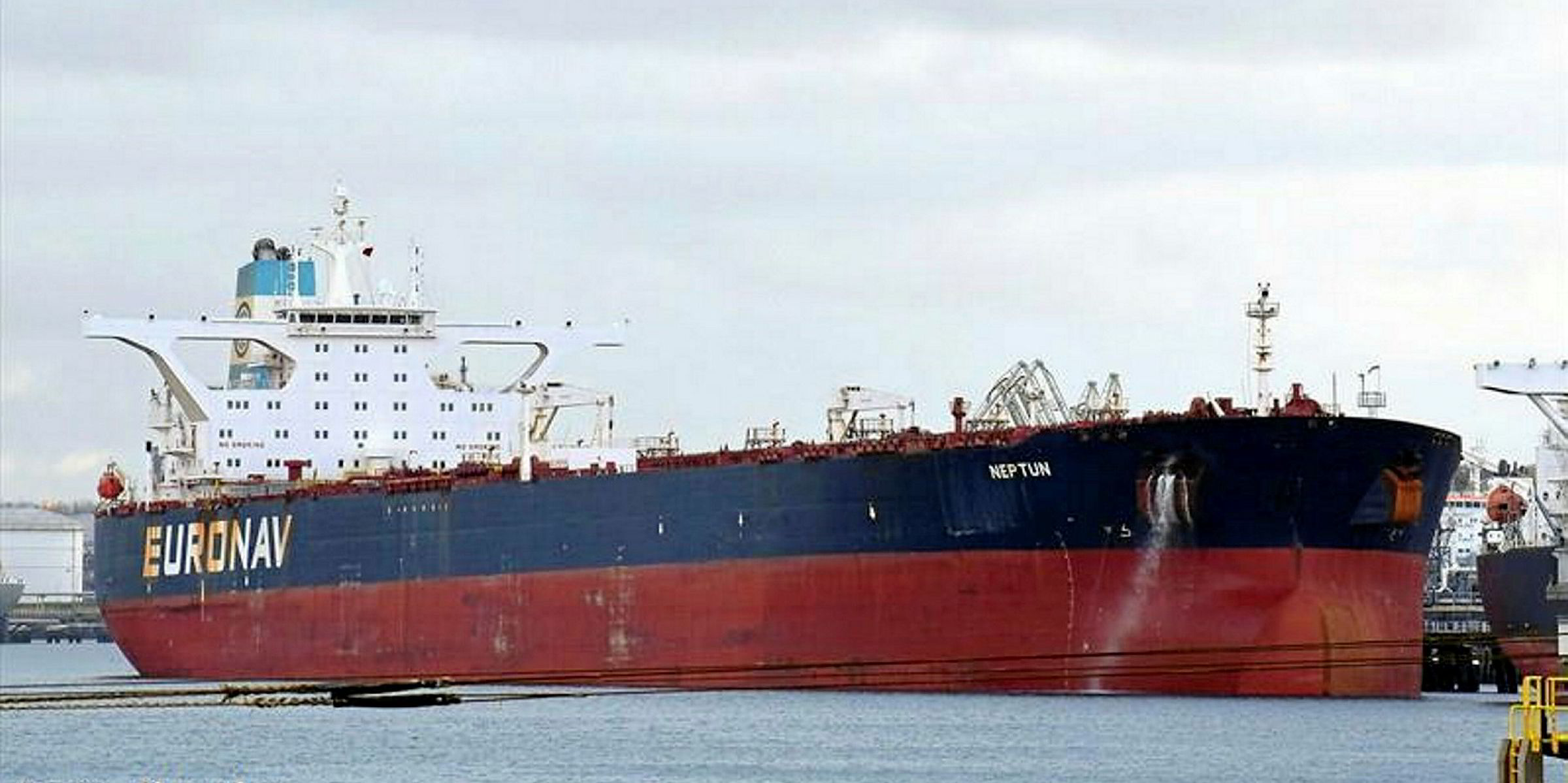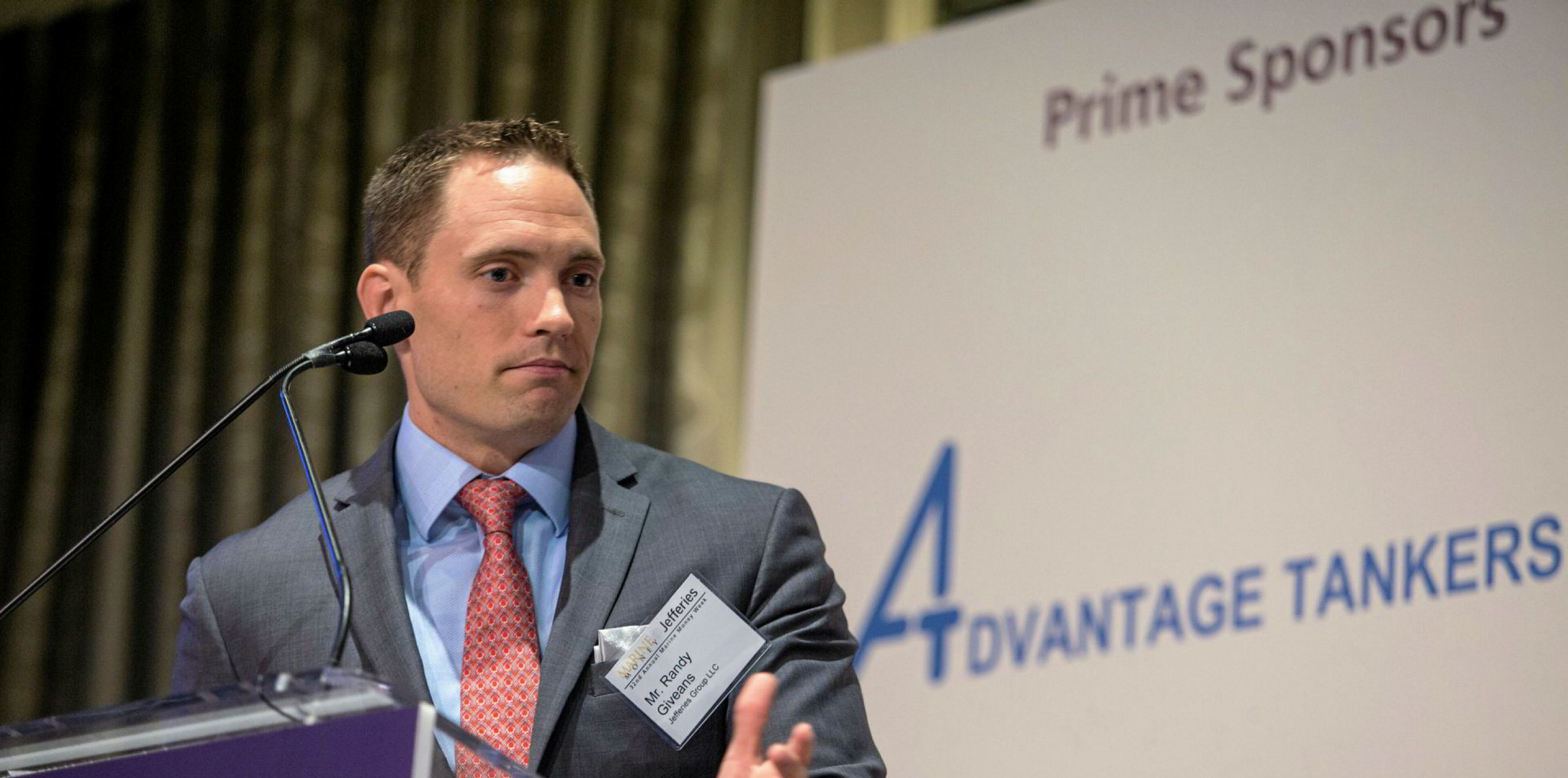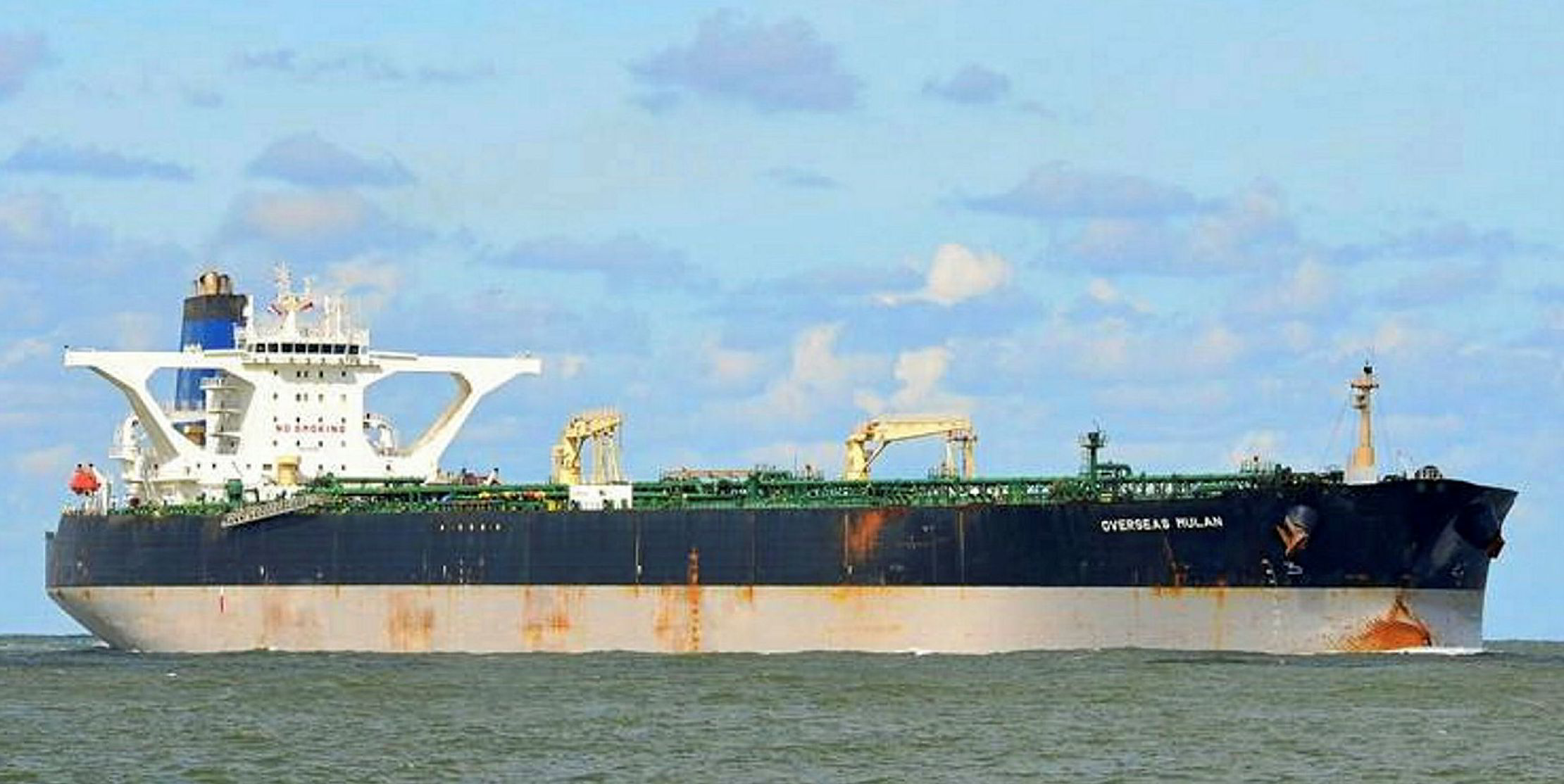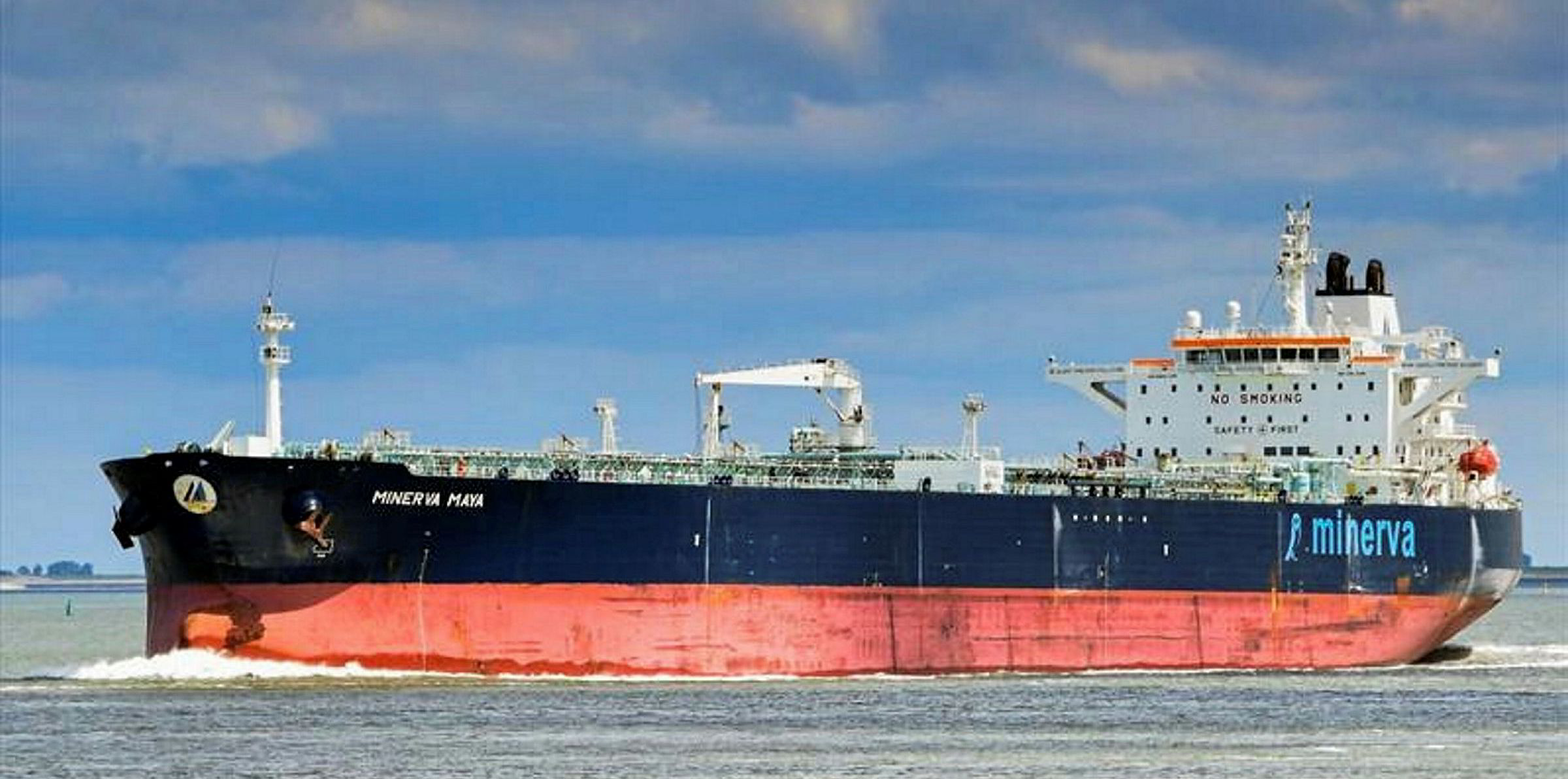New York-listed tanker owner Euronav is planning to use profits from vessel sales to reduce debt and renew its fleet.
This is according to US investment bank Jefferies, whose analysts have held a series of meetings with the company's management.
The Belgian tanker owner is the latest shipowner to come under the Jefferies microscope.
In a punning note entitled "Euronav = You're a NAV", analysts Randy Giveans, Christopher Robertson and Chadd Tribo said Euronav bosses told them that cash from disposing of older tankers will be recycled into debt repayment and fleet renewal efforts.
This includes the acquisition of four scrubber-fitted resale VLCCs expected to deliver this year and in the first three months of 2021 from DSME in South Korea.
These were acquired from Sinokor Merchant Marine at $93.5m each in February.
Four sales concluded
Euronav confirmed the 159,000-dwt suezmax Bastia (built 2005) had left the fleet for $20.5m this week.
The vessel was owned by a joint venture that included Ridgebury Tankers and Tufton Oceanic. The JV will bank a capital gain of $0.7m.
Two other suezmaxes and a VLCC have also been sold by Euronav this year, bringing total capital gains of $22.9m.
Jefferies has a buy rating on the company, with a target price for its shares of $13, against a US close of $9.06 on Tuesday.
Poised to capitalise
"We believe the company is well positioned to weather any short-term weakness and should benefit substantially from the medium-term recovery in the crude tanker market," Jefferies said.
"Despite market volatility related to Covid-19, this year is set to go down as a banner year, as seen by the much improved balance sheet, generous dividend payments, accretive share repurchases and prudent fleet renewal."
Following a "stellar" second quarter performance, Euronav has returned $196m to shareholders via a combination of $100m in share repurchases and a $96m dividend, Jefferies said.
Management expects another profitable quarter in the third period, with additional dividends and share buybacks said to be highly likely, the analysts added.

The second quarter ended with $280m of cash in the bank, plus $806m of undrawn credit facilities.
The net-debt-to-capitalisation ratio was 37%, positioning Euronav to not only withstand any relative market weakness, but also to be able to act on attractive acquisition/consolidation opportunities in the future, the investment bank said.
Low-sulphur fuel acquired
Euronav bosses said that both its ULCCs continue to be employed on floating storage charters.
The 442,000-dwt Oceania (built 2003) is holding very low sulphur fuel oil (VLSFO) for the company's own use.
Euronav told Jefferies that at the height of the Covid-19 pandemic and the collapse in fuel oil prices earlier this year, the company stopped drawing down inventories from the vessel, and it has now replaced some of the fuel during the third quarter by buying new VLSFO and blending it with stored fuel to reduce the average cost.
The company had indicated in May it could sell some of the fuel to third parties.
Euronav said in its first-quarter results that the value of the remaining oil on board had fallen $56m below its book value as bunker prices dropped.
The shipowner's executives believe crude tanker spot charter rates could experience an unseasonably weak fourth quarter as the oil market remains over-supplied while the forward price contango remains relatively flat and unsupportive of additional floating storage contracts at profitable VLCC rates, Jefferies said.
Scrap prices rise
"Looking further ahead on a positive note, the company notes that Opec+ and US production have declined this year due to the collapse in oil prices, plus several recent weather events in the US Gulf Coast, which could be reversed in 2021 if global demand increases," the analysts added.
Management also highlighted that weaker spot rates in the near term might help drive increased scrapping as steel prices have risen.
Bosses said the futures price for scrap steel indicates a VLCC could be scrapped for circa $17m in the coming months, up from just $12m earlier this year.
Clarksons Platou Securities said on Wednesday that spot VLCCs were enjoying relatively steady rates at $14,400 per day on average.
Activity remains slow but earnings in West Africa and the US Gulf are supported by few naturally positioned vessels, the Norwegian investment bank said.
"In the Middle East Gulf, however, earnings remain under pressure from an increasing list of ballasting ships coming in from the Far East," Clarksons Platou added.
But brokers said activity is expected to improve over the next few days. "We will just have to see if that can help lift earnings," the investment bank said.







